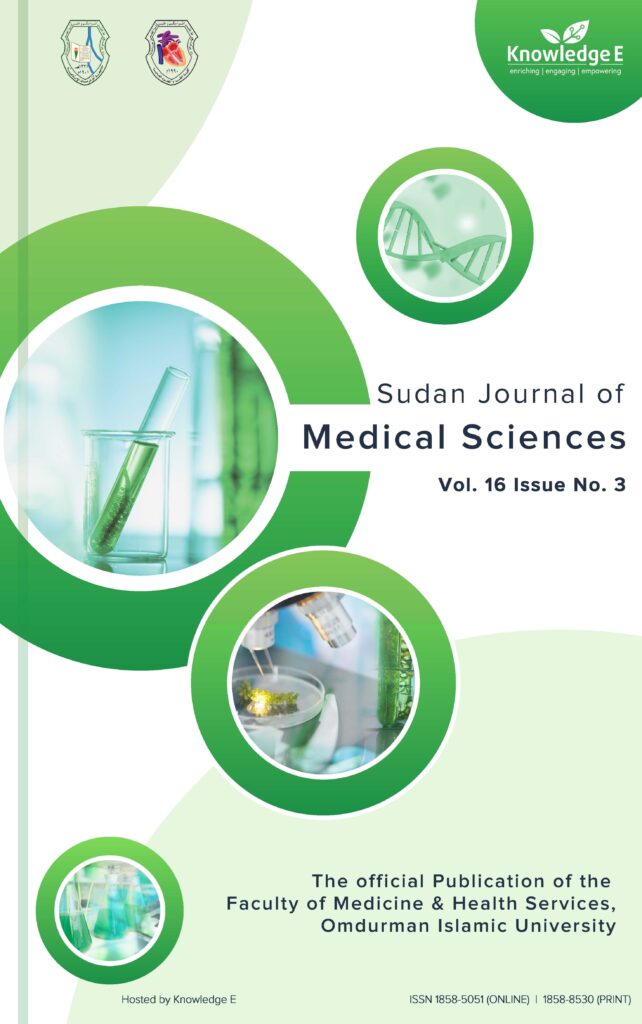
Sudan Journal of Medical Sciences
ISSN: 1858-5051
High-impact research on the latest developments in medicine and healthcare across MENA and Africa
Fraud and Misconduct in Publishing Medical Research
Published date: Jun 25 2020
Journal Title: Sudan Journal of Medical Sciences
Issue title: Sudan JMS: Volume 15 (2020), Issue No. 2
Pages: 131 – 141
Authors:
Abstract:
One of the important feature of scientific research is scrutinizing truth. Investigators strive for honesty and integrity in all scientific communications. Candidly reported methods and procedures, data and results, and their publication status should reflect authenticity. Publication of fake data diverts the search from truth. The aim of studying human subjects should be advancing research and scholarship and not just the researcher’s own career. Misconduct in medical research is any intentional deviation from acceptable ethical principles. Intentional misconduct is a serious observation, and misconduct such as falsification and fabrication of data and plagiarism are the most common fraud practices in medical research. Misconduct can occur at any stage of the research process; however, it particularly occurs in the results section of the research as researchers try to avoid negative findings. Data falsification occurs when investigators attempt to alter data to meet their own expectations. Falsification could involve altering data and results on research participants’ record to fit research report. Data fabrication occurs when researchers report data that were completely constructed and never occurred when running the research. Plagiarism is using—either deliberate or inattentive—other researchers’ ideas and words without clearly acknowledging the source of that information. Although fraud and misconduct have serious consequences, they are not uncommon among research publications in scientific journals. Institutions have to develop a mechanism to discover research misconduct and to prevent it. Editors and reviewers are required to introduce some commentaries in the regulations to impose sanctions on those found guilty of research misconduct.
Key words: research, fraud, misconduct
References:
1. Shahnazarian D, Rose S L., Hagemann J, Aburto M. Avoiding Being Penalized: Research Misconduct. USC: online course available at www.citiprogram.org. accessed on April 1 2016.
2. Sox HC & Rennie D. Research Misconduct, Retraction, and Cleansing the Medical Literature: Lessons from the Poehlman Case. Ann Intern Med. 2006; 144: P 609-13.
3. Baggage C. Reflections on the decline of Science in England. New York. N.Y. Aufustus;1970 {1830}
4. Weir C, Murray G. Fraud in clinical trials: Detecting it and preventing it. Significance. 2011:164–8.
5. Catano VM, Turk J. Fraud and misconduct in scientific research: a definition and procedures for investigation. Med Law. 2007 Sep; 26(3):465-76.
6. Institute of Medicine, National Academy of Sciences, and National Academy of Engineering. "Research Misconduct." chapter/6: On Being a Scientist: Available from: http://www.nap.edu/read/12192/. Accessed on April 12 2016.
7. US Department of Health. The office of Research Integrity. http://ori.hhs.gov/definition-misconduct. Accessed on March 30 2016.
8. Gupta A. Fraud and misconduct in clinical research: A concern. Perspectives in Clinical Research. 2013; 4(2):144-147.
9. Fanelli D. How Many Scientists Fabricate and Falsify Research? A Systematic Review and Meta-Analysis of Survey Data. May 29, 2009; PLoS ONE 4(5): e5738.
10. Elsayed DM. Manual for Research Ethics in Medical and Health Sciences. Lap Lambert Academic Publishing Saarbrücken/Germany 2013. http://www.morebook.com
11. Das N, Panjabi M. Plagiarism: Why is it such a big issue for medical writers? Perspect Clin Res. 2011 Apr; 2(2): 67-71.
12. Kumar PM, Priya NS, Musalaiah S, Nagasree M. Knowing and Avoiding Plagiarism During Scientific Writing. Annals of Medical and Health Sciences Research. 2014; 4(Suppl 3):S193-S198.
13. Sheehan JG. Fraud, conflict of interest, and other enforcement issues in clinical research. Cleve Clin J Med. 2007; 74:S63–7.
14. Habermann B, Broome M, Pryor ER, Ziner KW. Research coordinators’ experiences with scientific misconduct and research integrity. Nurs Res. 2010; (59): 51–7.
15. Jessen J, Robinson E, Bigaj S, Popiolek S, Goldfarb NM. Unreported clinical research fraud and misconduct. J Clin Res Best Pract. 2007; vol. 3 (1): 1–5.
16. Reynolds SM. ORI findings of scientific misconduct in clinical trials and publicly funded research, 1992-2002. 2004; Clin Trials. 1(6): 509-16.
17. Elsayed DM, Elamin R. Medical Ethics: What is it? Why is it important? SJPH. April 2009; vol. (4):2. 284-87. Available from: http://www.sjph.net.sd
18. Al-Marzouki S, Roberts I, Marshall T, Evans S. The effect of scientific misconduct on the results of clinical trials: A Delphi survey. Contemp Clin Trials. 2005; (26):331–7.
19. Ghooi RB. Expert committee to formulate policy and guidelines for approval of new drugs, clinical trials and banning of drugs-comments. Perspectives in Clinical Research. 2014; vol. 5 (3):100-107.